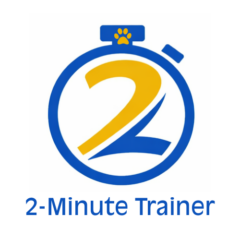Teasing your dog is lying. Fooling your dog is lying. Stop lying to your dog.
Last year there was a viral video challenge on social media that featured people, with their pets as audience, holding up a blanket in front of themselves (in a doorway), stepping out of sight, and dropping the blanket. Hilarity ensued, as the dogs (or birds, or cats) looked surprised and went to find their “disappeared” people.
It was funny, and not what we’re talking about. It was a momentary “startle” and the dog’s world was right-side-up again within moments. Not a big deal.
Habitual lying is the issue
Also on social media, in a local dog-owners group, we saw a picture of an adorable dog and the owner, introducing herself and her pup, said one of her dog’s favorite games was chasing the laser pointer.
That’s lying to your dog. Big time. If you’re playing that game, stop it.

You’re probably wondering why that’s a big deal. The reason is because it’s a no-win game. And while people may understand “no win” scenarios and choose to play as a skill test, dogs don’t. The dog can never, ever catch the light.
A behaviorist friend of ours has witnessed dogs becoming obsessed by the light. What started as a game becomes a frustrated compulsion to chase light – any light. Even sunlight coming through a window, with trees causing shadows, triggered the obsessive/compulsive behavior. Does it happen with every dog? No. But why play a game your dog can’t win?
Never lie to your dog
Dogs are honest beings. Contrary to what some people think, dogs aren’t conniving or guilt-ridden. If your dog peed on your bed when you went to work, it wasn’t because she was being spiteful. It was because she’s suffering from separation anxiety, was looking for you, and was in distress.
Chances are that dog was lied to. Rather than teach her a routine to follow when they were leaving for work, they may have tried to sneak out. Dogs are highly adaptable, bright beings. When they’re given the information they need to cope with a situation, they can do it. If you’re leaving for work, give your dog a special “I’m leaving” treat-filled toy, tell him/her to be good, and go.
Be good to your dog
When dogs know what they’re supposed to do, they’ll do it. Not robotically, and their responses can change with location, distraction, etc. But if your dog knows the word “Sit!” your dog will sit whenever you ask, wherever you are, whoever’s around you.
And if, every time your dog does as you ask, you deliver a reward, your dog will do it more consistently and happily over time. Consistent behavior on our part is mirrored in our dogs. Don’t pretend you have a treat if you don’t. Tell your dog she’s wonderful and show your open hands. She may be disappointed that there’s no cookie, but she’ll know she can always trust you.
